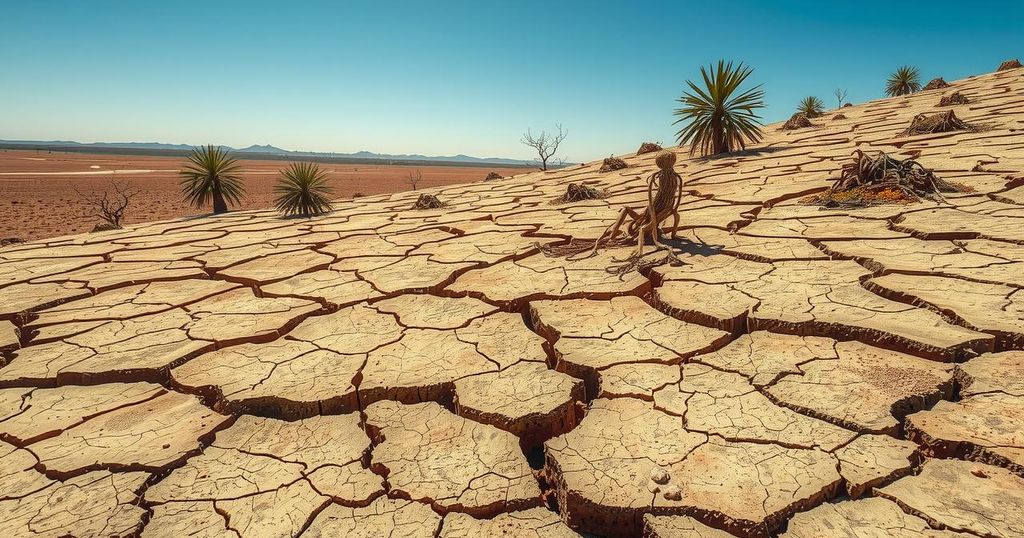WASA alerts residents of Trinidad and Tobago about potential water shortages due to the 2025 dry season, exacerbated by climate change. Key reservoirs are showing declining water levels, and distribution cutbacks will be necessary to manage supply fairly across the affected areas. Proactive projects are being implemented to improve water availability.
In Trinidad and Tobago, the Water and Sewerage Authority (WASA) has issued a warning about water shortages as the 2025 dry season takes hold. At a recent press conference, WASA CEO Keithroy Halliday noted that this dry season, culminating in mid-March, is already revealing potential shortages, a situation aggravated by ongoing climate change.
WASA’s Director of Water Management Services, Shaira Ali, shared that water levels in critical reservoirs have decreased due to high temperatures and insufficient rainfall. The Arena Reservoir, vital to the Caroni Water Treatment Plant, currently holds 73.8% capacity, significantly lower than its historical average, while the Hollis Dam is at 77%, slightly above its average of 76%. Ali warned that water levels in these reservoirs are projected to decline further.
Despite some replenishment from rainfall earlier in January, February saw minimal precipitation with total rainfall at 41mm. The Hollis Reservoir started the year full, facilitating the distribution of over 9.5 million gallons daily. Nonetheless, decreasing water levels have prompted the Authority to adjust water management strategies, including potential scheduling changes.
Ali indicated that in response to water scarcity, specific cutbacks in water distribution are anticipated. These measures aim to balance supply across Trinidad, with certain regions already experiencing disruptions. Areas like Arima Old Road, La Florissante, and parts of Arouca in the east, will be affected, as will regions served by Valsayn and El Socorro Booster Stations in the west.
Further shortages are expected in central and southern Trinidad, notably in St Helena, San Fernando, and Fyzabad, while communities dependent on the Freeport Waterworks, such as Gran Couva and Calcutta, are already experiencing deficits. Director Sharon Bailey highlighted upcoming projects, including new wells and pipeline replacements to alleviate water scarcity and improve supply reliability.
Anand Jaggernath, another Water Management Service Director, noted that the past year concluded with dam levels above historical averages, yet strategic monitoring of reservoir conditions is crucial for adapting to this dry season. Additionally, in Tobago, Director Brian Williams reported a worrying 14% reduction in available water supplies, underscoring the widespread challenges posed by the current dry season.
The ongoing dry season in Trinidad and Tobago is already impacting water availability, with WASA warning of shortages exacerbated by climate change. Reservoir levels are dropping, necessitating cutbacks in water distribution and proactive management strategies. Communities are to expect disruptions in supply while WASA initiates projects aimed at improving water resilience in the face of ongoing climatic challenges.
Original Source: trinidadexpress.com






